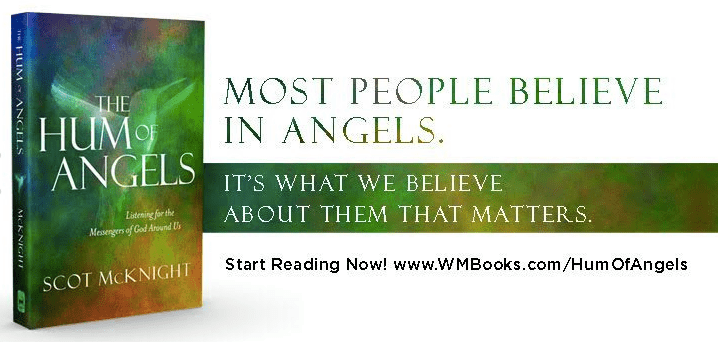Do you believe in angels?
Based on my new book, The Hum of Angels: Listening for the Messengers of God Around Us.
Most of us believe in angels, but “most of us” needs to be emphasized. In one of the most highly respected surveys of what Americans believe The Baylor Survey of Religion asked if Americans believe in angels:
88% of women and 74% of men believe in angels.
Mixing them together, 82% of Americans believe in angels.
93% of the “Religious” but only 69% of the “Spiritual” do.
The Baylor Survey took place between 2005-2007, and it concluded that 82% of Americans believe angels exist. That’s “most of us.” A Time survey lowered some of this, with 69% of Americans believing in angels with 46% believing in a guardian angel. That’ still “most of us.” What spurred well-known religious experience researcher and reporter, Emma Heathcote-James, into action was when she learned a third of us claim to have seen an angel. Perhaps the shrug of the shoulders about angels ought then to be directed at those who choose not to believe in angels.
But not all agree
Old Testament professor, Claus Westermann: “People don’t believe in angels anymore. They haven’t believed in angels for centuries.” He goes on to say that, even though there is no such being as an angel, many of us still talk as though angels do exist. He offers this explanation: what the Bible calls angels was not in fact a supernatural being but a moment so important to someone that the person depicted it as a message from a messenger of God. Here is how he put it:
The stories in the Bible that speak of angels relate the experiences of men and women to whom God drew so very near in moments of great personal crisis or danger that they sensed in the words of a human being the work of a messenger of God, and in the help of a human hand they felt the helping hand of God.
It’s not just professors who doubt the reality of angels. A life of service in the church has led Charles Jaekle to admit that the church itself has ignored angels. Here are his words about sermons – his and others’ – and lectures and seminary classes:
Angels are, indeed, amazingly popular, but I, for one, cannot recall one sermon on that subject I ever preached, or ever heard anyone else preach, in all my years within the Christian church. Nor do I remember a lecture, or even an informal discussion, within the walls of any church where I have assisted or belonged that included a serious interest in angels or the church’s position on that subject. Further, I cannot recall, even once, in my entire theological education in preparation for the ordained ministry or in any postgraduate study, any discussion having to do with angels or the church’s historic angelologies. Reflection on a lifetime of church membership leads to one conclusion: a massive bias that angels and their encounters with human beings are unworthy of serious religious study or investigation.
No wonder people are wary to speak up about their experiences of angels. If the angels are absent from sermons, classrooms, as well as seminary education a message is being sent loud and indirect: angels are not for public discussion. We could call this approach to angels the “de-angelification” of the Bible and the church and the faith, and for the many who have experienced angels they have to be submerged into the “spiritual underground” out of fear of being considered a crank. Hence, for someone like Westermann, the “angels” of the Bible were not angels but moments when a human said something so important to someone that the breakthrough was explained as if it were a messenger straight from God. I can count for a long time before getting to the end of the numbers of those I have heard suggest such things about the Bible.
Back to the Numbers
A decade later than that Baylor Survey just noted, after swirls and swirls of news about the decline of religion in the so-called secular West, The Associated Press-GfK asked about belief in angels to church-going folks in the USA with this conclusion:
88% of Christians…
95% of evangelical Christians…
94% of anyone who attends any kind of religious institution and
77% of American adults,
… believe in angels.
In his famous Church Dogmatics Karl Barth throws down the gauntlet and essentially says: Take God and the angels or drop both, but God without the angels is impossible:
It is true, of course, that we can miss the angels. We can deny them altogether. We can dismiss them as superfluous, or absurd and comic. …If we cannot or will not accept angels, how can we accept what is told us by the history of Scripture, or the history of the Church, or the history of the Jews, or our own life’s history? And … Where God is, there the angels of God are. Where there are no angels, there is no God.
It may sound sophisticated today to classify belief in angels with belief in ancient myths and superstitions and fairies and gnomes and hobbits. It may be a mark of intelligence in some circles to lower one’s head and peer over one’s trendy glasses at the believer in angels with a look of condescension but fact and facts prove that on this one the so-called sophisticates are not trending.
“Most of us” believe in angels.
How about you?












